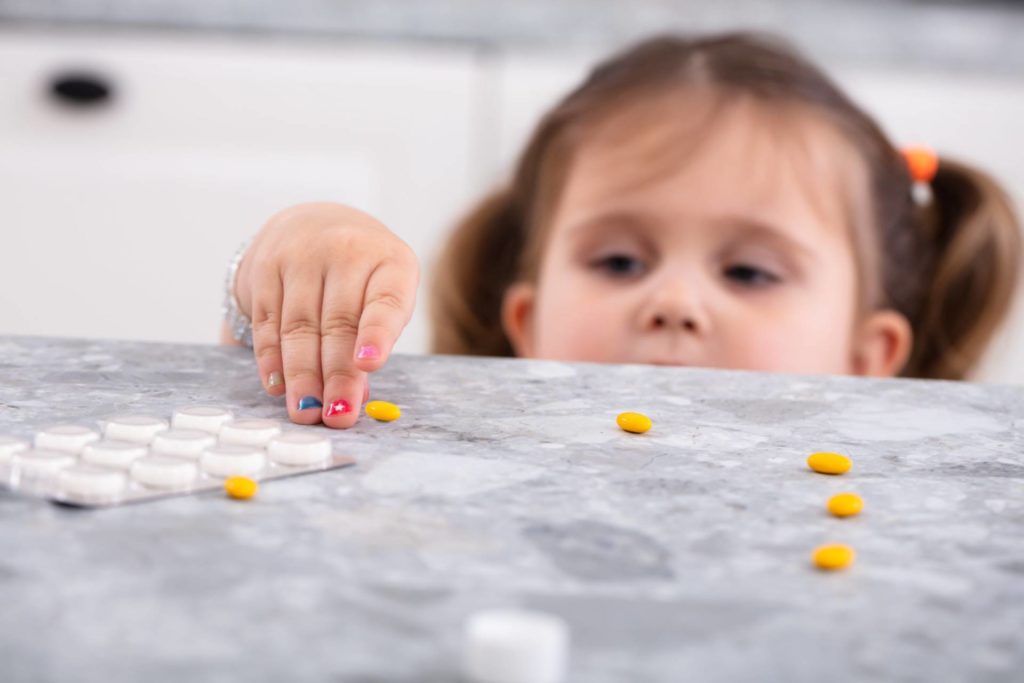How Families Can Manage Medications To Help Keep Kids Safe
Posted in General | Tagged in medication, med safety, medication safety

One call that emergency responders never like to hear is that of an accidental medication ingestion or possible overdose involving a child or teenager. As adults, it can be easy to assume that your child knows best or that a kid-proof seal will keep them out, but children can be more naive or determined than we realize until it’s too late.
In the hopes of helping reduce your risk of ever needing to call 911 because your child ingested some medication that wasn’t meant for them, we want to share some tips for how families can safely manage medications and prescriptions in the home.
Safe Medication Practices For Families
Here are some simple tips to help reduce the risk of accidental ingestion or medication abuse if you have teenagers or young children in your household.
1. Keep Them Out Of Sight – We understand that you may want to leave your prescription on the counter or bedside table so that you don’t forget to take your pills, but easily accessible medication can catch the attention of young children. Set an alert on your phone or have your spouse help remind you to take your pills with dinner, don’t just leave them out in the open for all to see and access.
2. Lock Them Up – For stronger medications, it’s a good idea to lock them in a safe or a drawer that only you have access to. We’d all like to believe that our children would never take our medication, but you just never know. They may have friends over to the house or learn that they could make some quick money by selling your pills to someone at school, so make it much harder for anyone but yourself to access these strong medications by locking them away.
3. Click And Check – When putting the lid back on the prescription bottle, make sure you listen for the click or snap sound that signifies that the lid is secured in place. The child-proof locking system only works if the cap is put back on the bottle correctly. After you’ve put the cap back on, give it a gentle pull to see if it comes loose or completely off. If the lid remains on, you’re good to go.
4. Talk To Your Kids – If you have young children in your house, it’s a good idea to talk to them about medication safety. Your pills may look like candy, but they can have devastating consequences. Let them know that medications can make them very sick and that they should never eat anything they find on the ground or in the medicine cabinet.
5. Talk With Your Relatives – You may be surprised to learn that one survey by Safe Kids Worldwide found that 43 percent of emergency room visits for medical poisonings were the result of children accessing medications that did not belong to Mom or Dad. If you’re having people over, make sure that handbags or purses that may contain medications are up high or out of sight after your guests arrive.
6. Help Administer Their Medications – If your teen or child has to take medication, help them with the process. Don’t just tell them to take their medication, get the right amount for them and watch them take it. You can give some more leeway as your kids get older, but for younger children, you’ll want to oversee the entire process.
7. Dispose Of Old Or Expired Medications – If you no longer need your pain medication or a prescription has expired, don’t just leave it in the medicine cabinet forever. Safely dispose of the medication so that it is no longer tempting or dangerous to the kids in your house. The two best ways to do this are to drop the container off at a safe disposal site like you’ll find at most pharmacies, or to grind it up with dirt, coffee grounds, kitty litter or another undesirable substance and throw them away. Don’t just put the whole pills in the trash or flush them down the toilet.
8. Know The Poison Control Number – Consider programming the 24-hour poison control hotline into your phone, or write it down and put it on your refrigerator so that others know where to call in the event of an emergency. That number is (800) 222-1222.
If you do these things, we’re confident that you’ll greatly reduce your risk of an accidental ingestion or overdose in the home. For more information, reach out to the team at Gold Cross Ambulance today.
Leave a Reply